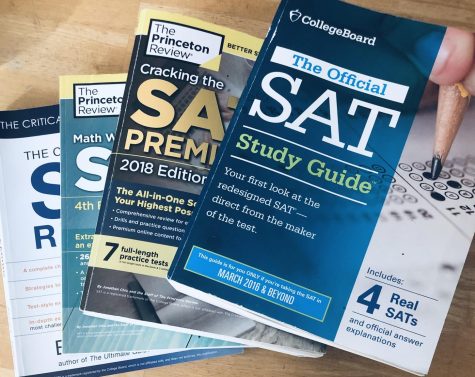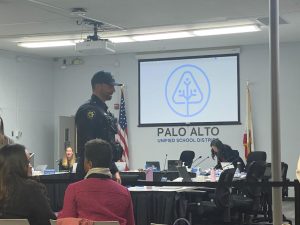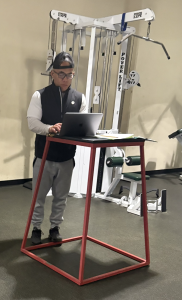Subject tests axed; students, colleges largely shrug
January 27, 2021

Paly College and Career Counselor Sandra Cernobori explained that with colleges and universities relaxing subject test requirements and recommendations over the past few years, the cancellation of the exams has been looming. Registrations declined steeply following the University of California system — the largest public school system in the United States — decision to make subject tests optional in 2012. Recently, closed test centers due to COVID-19 regulations have posed test-taking challenges, often posting cancellations less than a week before the test date and forcing students to reorient their plans.
Most startling in the statement last Tuesday by the College Board was not the removal itself of subject tests, but rather the fact that it is effective immediately, possibly sending student plans and preparation for subject tests awry.
“You might expect that the College Board would have phased it out,” Cernobori said. “I understand the surprise, disappointment, frustration with that.”
According to David Coleman, the College Board’s Chief Executive Officer, the three-hour-long and more comprehensive Advanced Placement exams — also administered by the College Board — are “a much richer and more flexible way for students to distinguish themselves” in comparison to the single-hour SAT subject tests. Such a distinction drove the decision to entirely remove SAT subject tests, which are not requirements for many of today’s college applications, especially with revised COVID-19 requirements.
AP exams, according to Cernobori, are on the whole more challenging than subject tests, covering a full year’s worth of college-level curriculum. Most of all, she said, colleges value coursework over test scores, and so subject test cancellation will not have drastic impacts on applications.
According to Cernobori, AP course registration will likely not spike as a result of the announcement.
“Subject tests were demonstrating proficiency,” Cernobori said. “Your grade in a course, AP or not, is also demonstrating proficiency.”
The updates are aimed to “reduce and simplify demands on students,” according to the College Board. Last year, students took AP exams in a shortened, online format; however, the College Board has not yet developed an online version of the SAT and subject tests. With fewer exams to administer, the College Board will now likely be “allocating seats that would have gone to students taking Subject Tests to students who want to take the SAT,” easing the burden on students as they prepare to apply to college.
Some students echo this reasoning, and say they feel the cancellation of tests will not hinder college applications.
Junior Emily Yao said that while AP exams are likely more valuable in showing proficiency while also allowing students to accumulate college credits in high school, students who are not enrolled in AP courses may not receive the same opportunity to showcase their skills. However, Yao said, students can still take to other extracurricular avenues to display their academic strengths.
“I can see how it can be frustrating when those students see that subject tests are not being offered while AP tests still are,” Yao wrote to The Paly Voice. “Of course, this [SAT subject tests] isn’t the only way to show your interest in a field, so I don’t personally mind if the College Board chooses not to offer them this year.”
Others feel that the action could potentially have some harmful effects. Senior Kevin Zhao said that while he believed that removing subject tests was “a good thing” and would generally reduce stress and workload for students, their frequency and lack of prerequisites — unlike the requirement to take an AP course and register through the school for AP exams — allows a broader range of students to demonstrate their academic abilities.
“I do think people are neglecting an important reason for their [subject tests’] existence,” Zhao stated in a message to The Paly Voice. “Subject tests, unlike APs, are so much more accessible to your average high school student. They’re hosted multiple times a year and you don’t need to take them through a school.”









